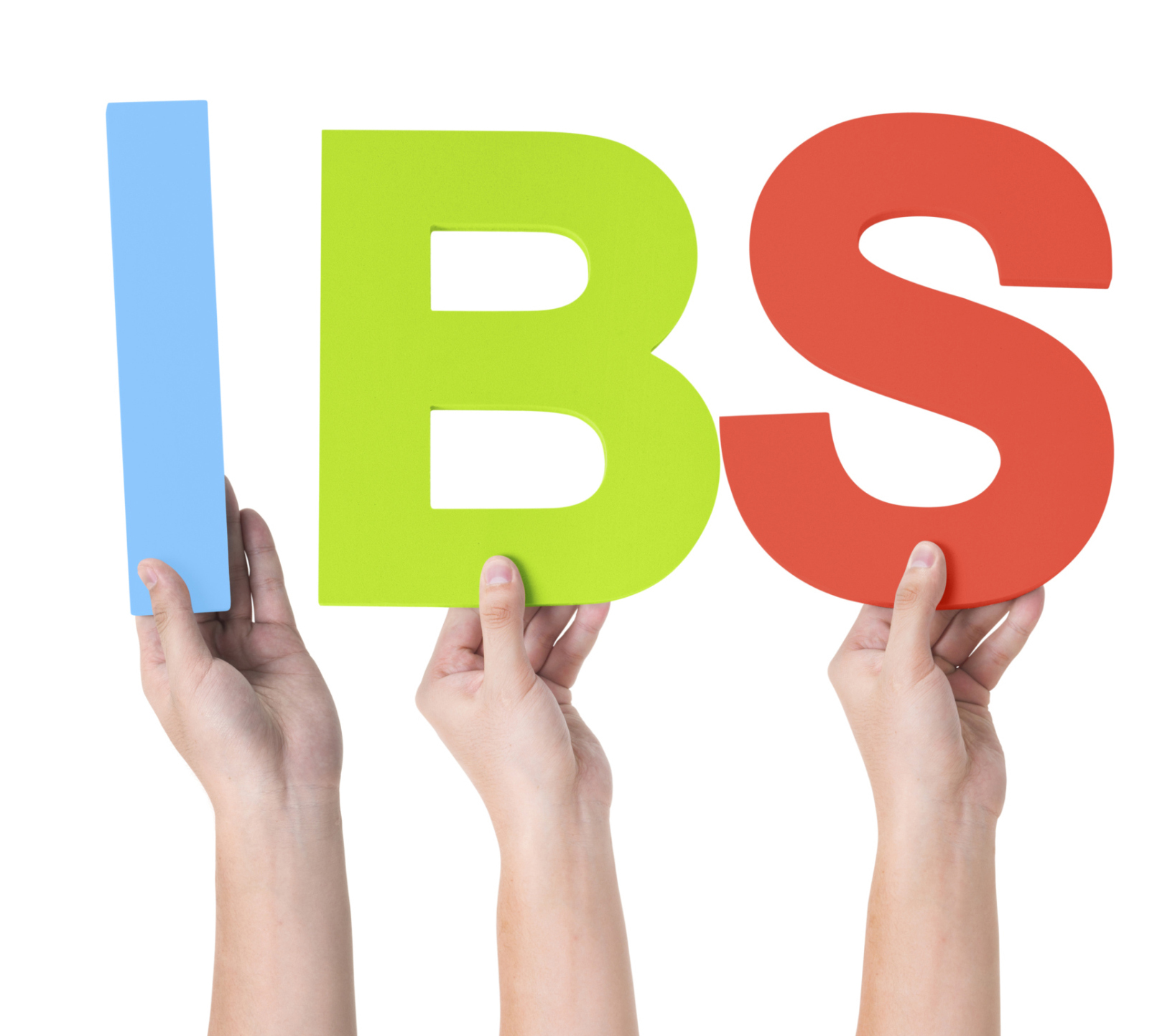Tummy trouble – IBS
The symptoms of irritable bowel syndrome may be uncomfortable and painful, but the anxiety they bring is often one of the biggest struggles. Abi Jackson reports
Being diagnosed with irritable bowel syndrome (IBS) should, in theory, be a source of relief.
After all, it means those worrying symptoms – like chronic diarrhoea or constipation, bloating, painful cramps after eating – are not down to anything sinister.
Unlike other conditions which may cause similar symptoms, like Crohn’s, coeliac disease or even cancer, IBS isn’t medically serious.
However, often in reality, far from being a relief, IBS can be a huge source of anxiety.
In a recent survey by Buscopan IBS Relief of 1,000 men and women with IBS, nearly a quarter admitted they worry about it up to 10 times a day and 35% said it made them stressed. Many felt embarrassed (41%), and some confessed to avoiding social occasions and eating out (24%).
More than half (56%) did not feel in control of their condition.
With this in mind, it’s little wonder IBS can cause such distress.
It’s believed that around 10-20% of the population experience IBS, though the true figure could be much higher. Symptoms usually first appear between the ages of 20 and 30, though it can occur at any age and may come and go in bouts.
Not only can symptoms be extremely uncomfortable, they can impact a person’s social life, relationships and even their work life.
Another factor is that an IBS diagnosis can often be perceived as a “fob off” – something GPs tell patients when they don’t believe their symptoms are serious enough to warrant referrals for more thorough tests.
If you Google symptoms like bloating and abdominal pain, you’ll be presented with a long list of frightening conditions; this can play on people’s minds if they don’t feel their doctors are really listening to them.
Dr Adam Stone, a consultant gastroenterologist at Nuffield Health Chichester Hospital, understands how this anxiety can arise.
“There’s no one diagnostic test whereby you can say, ‘This is IBS’,” Stone explains. “It’s very much a matter of excluding other things. And there’s a criteria of questions you can ask which will point us towards the diagnosis of IBS.”
For conditions like coeliac, Crohn’s or cancer, specific markers will be present in blood tests, scans and endoscopies (when a camera’s used for internal examinations), which aren’t present with IBS.
But that doesn’t mean the symptoms are necessarily milder.
“It can be very difficult to manage and there’s no doubt a large number of people, particularly women, have very significant symptoms from IBS,” explains Stone.
“It goes under the heading of functional bowel disease, which means that although the bowel is working – there isn’t any organic physical disease going on – symptoms are present and they can be very unpleasant.”
IBS makes up a “significant part” of both GPs’ workloads and hospital referrals, he adds.
“The trouble with abdominal symptoms in general,” Stone continues, “is that often the symptoms don’t match the disease behind them. You can have quite severe symptoms, yet you have a diagnosis of IBS. Or you can have minor symptoms, and it could be down to horrible bowel cancer.”
As numerous stories in the media have highlighted, there have been cases of patients being told they have IBS, only to discover further down the line that they actually had cancer.
It’s important to remember that cases like this are still relatively rare, but anybody concerned is right to return to their doctor, and Stone points out that there are some red flag symptoms which should never be ignored – like passing blood in the stools and unexplained weight loss. Plus, over 60s are eligible for routine bowel cancer screening.
If more serious diseases are ruled out, however, and the IBS diagnosis remains, that shouldn’t be seen as the end to the story.
Depending on the severity of symptoms, managing IBS successfully usually requires a degree of lifestyle changes, which includes understanding the role stress can play.
“The underlying factor in IBS is what we call visceral hypersensitivity,” explains United European Gastroenterology (UEG) spokesperson and UK gastroenterology consultant Dr Charles Murray.
“If you do nasty experiments to people and extend their bowels, people with IBS will always be more sensitive; we’ve known that since the Seventies. And the extent of this sensitivity is driven by stress.”
But what is meant by ‘stress’ can often be miscommunicated and misconstrued.
“With stress, I always say that it’s not necessarily something you’re even aware of,” explains Murray. “It’s not necessarily a psychological problem where I’m saying, ‘This is in your head’, but this is a hormone-driven effect, that’s happening in your gut – to use a medical term – on an autonomic level.”
Murray was involved in research a few years ago, which looked at gut changes when people are put under acute physical or psychological stress, and the results were akin to hypersensitivity.
Stress is a factor in countless health conditions – but this does not mean that some people are psychologically ‘weaker’ than others. It simply means that their bodies respond to triggers in different ways.
“We know IBS is not caused by foods – if it was, we’d have so many more people experiencing symptoms all the time. It’s more a case that you’re susceptible to the effects of what you’re putting into your body,” Murray points out.
When hypersensitivity exists, stress will exacerbate symptoms, but unlocking this cycle can be tricky.
“If you have chronic stress, it will lead to an underlying imbalance. And then you’re in a perfect storm, as all the foods will cause problems, and then you’re worried about these problems – and it gets worse,” Murray says. “The cycle has to break somewhere.”
As Dr Daryl O’Connor, Buscopan’s consultant psychologist, notes, worrying about symptoms is a very real issue in IBS: “Stress as a result of IBS may be associated with a patient’s symptoms not getting better. Some patients who experience high levels of stress because they worry excessively about their symptoms occurring in public, or because they believe they might have been misdiagnosed, could be making their condition worse.
“It’s important not to ignore the psychological impact of IBS.”
Exercise is proven to be extremely beneficial in stress reduction and management, so could be helpful for controlling IBS.
Identifying particular ‘trigger’ foods, by keeping a food diary, and adapting your diet is important too.
Trigger foods can vary widely from person to person. Some may only experience symptoms with wheat or diary, for instance.
The FODMAP diet is often visited as a first point of reference. Though, as Murray notes, new research recently published in the UEG Journal highlights that almost one-third of IBS sufferers are intolerant to fructose.
Within his practice, for patients experiencing high levels of loose stools and bloating, “around 70%” have seen “at least some or even dramatic improvements” by moderating fructose intake.
High fructose levels are found in certain fruit and veg, dried fruits, sauces, and particularly in processed foods and drinks.
It’s important to ensure that cutting foods does not result in nutritional or calorific shortfalls, so it’s advisable to follow the guidance of a dietician – most GPs will have access to refer patients.
Over-the-counter remedies may offer some relief; fibre solutions and peppermint oil-based treatments are popular and may be beneficial, but a multi-pronged approach incorporating diet, lifestyle and stress management offers the greatest chance of relief.
:: Buscopan IBS Relief contains hyoscine butylbromide and is designed to ease abdominal pain associated with spasms, RRP £4.48, pharmacies and supermarkets nationwide. For further tips, visit www.ibs-relief.co.uk
Disclaimer
All content on Silversurfers.com is provided for general information only, and should not be treated at all as a substitute for the medical advice of your own doctor or any other health care professional. Silversurfers will not be responsible or liable for any diagnosis made by a user based on the content on www.silversurfers.com and we are also not liable for the content of any external websites or links from or to Silversurfers to any other websites. Please always consult your own doctor if you’re in any way concerned about any aspect of your health.
What experience do you have with IBS?
Latest posts by Sally - Silversurfer's Editor (see all)
- How to keep your tulips lasting longer - April 25, 2024
- Do you sleep with a snorer? - April 25, 2024
- Holiday hack: How to win a GHA DISCOVERY Titanium status upgrade - April 23, 2024
- 10 Money saving tips for gardeners - April 21, 2024
- Should smacking a child be banned in England and Northern Ireland? - April 17, 2024






















